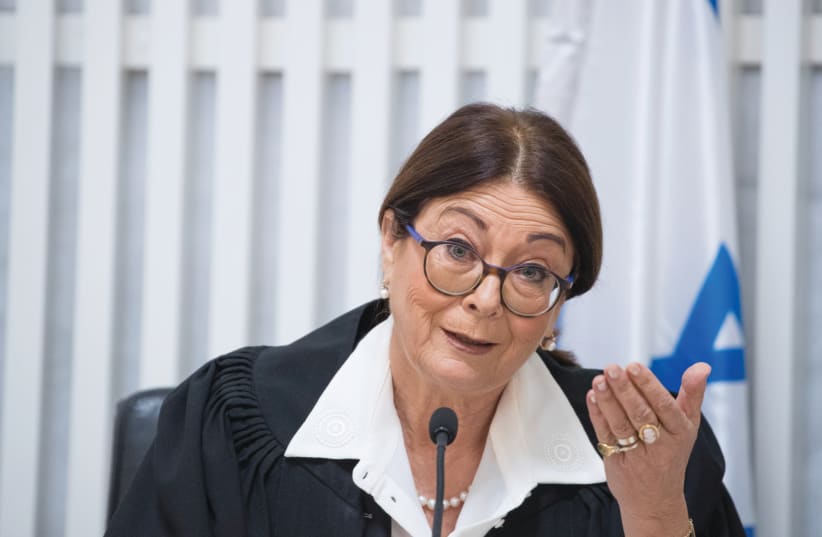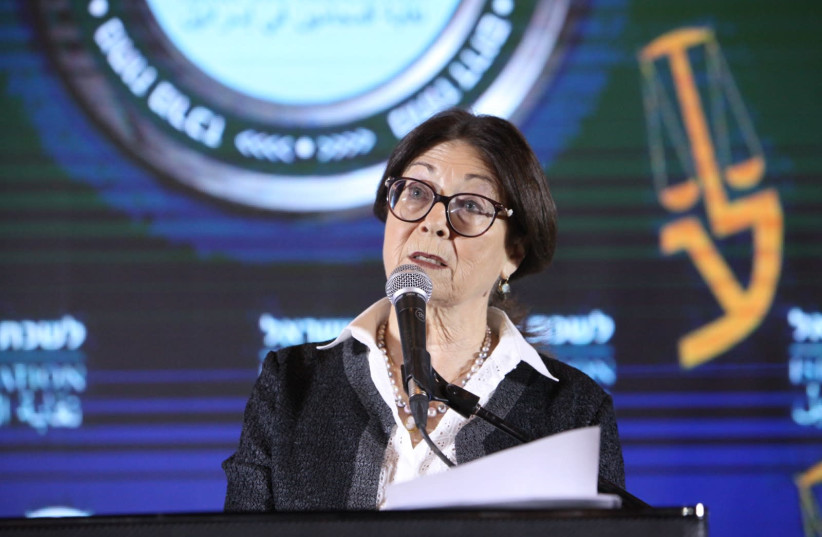Supreme Court President Esther Hayut knew she was walking into one of the most stressful and controversial jobs in the country when she took over in 2017, but no one could ever have imagined the intensity of attacks she has had to fend off.
With around four years under her belt as the chief and another two plus years to go, she's on track to be the most influential chief justice since Aharon Barak.
Hayut will eventually serve longer than predecessors Miriam Naor and Asher Grunis combined and the historic rulings during her term overshadow even the major decisions that came down during Dorit Beinisch’s era.
See No. 18: Grand VizierSee No. 20: The Who Behind WhatsAppSee full listDownload full magazineSee 2020's list
For some years, less influential politicians had expressed their anger at judicial decisions by threatening to use a D-9 (armored bulldozer) to demolish the court.
But it was only with two years of brutal election campaigning as well as the era of former prime minister Benjamin Netanyahu under indictment and turning his full fury on the courts along with Amir Ohana, his former justice minister, that the judiciary faced the real potential of being taken apart.
With the government of Naftali Bennett and Yair Lapid taking power in mid-June and Gideon Sa’ar becoming Justice Minister, Hayut could finally give off a sigh of relief.
That sigh of relief could also be seen in delayed rulings that were rushed out in droves.
In recent months, Hayut and the High Court endorsed the Jewish Nation State Law, angering many on the political Left, as well as endorsing the alternate prime minister rotation related basic laws and a basic law extending the time to pass the budget as constitutional.
This was after 17 months of also holding that nearly all coronavirus emergency laws, including Shin Bet (Israel Security Agency) surveillance of infected persons was constitutional (the court very belatedly rolled back the surveillance, but only once the volume of infections had dropped dramatically.)
On the flip side, the High Court infuriated the political Right by even hearing some of the above basic law cases which the Right believes the court lacks jurisdiction to even debate.
Moreover, the High Court angered the Right with limits on Netanyahu’s involvement in law enforcement appointments (while he was still prime minister) ordering the appointment of a police chief and justice minister (when Netanyahu was stalling his coalition partner Benny Gantz’s picks).
In addition, the High Court endorsed non-Orthodox conversions, granted equal financial rights to a wife who had not been faithful to her husband – which overturned the Rabbinic High Court on the issue – and struck down the law that exempted the haredi sector from IDF service, setting a deadline of January 6, 2022 for the state to pass a new law or begin a universal draft.
Like her predecessor, Miriam Naor, she is categorized by many as a moderate activist. She is ready to strike down Knesset laws and state policies in particular circumstances, but tries to avoid wading too deeply into issues with larger political implications.
Despite angering the Right and the haredi political parties, some of the above decision and her leading an 11-0 vote in May 2020 to green-light Netanyahu to form a new government despite being indicted will always also mar her name on the Left.

